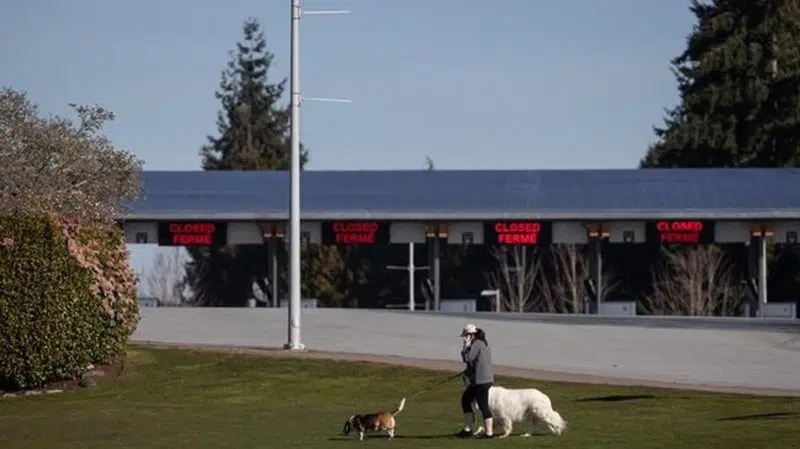
Canada, U.S. working out details of cross-border non-essential travel ban
OTTAWA — Closure of the world’s longest undefended border will begin in earnest today as Canada and the United States work out the details of banning non-essential travel between the two countries.
Prime Minister Justin Trudeau and President Donald Trump announced the ban Wednesday, intended to help curtail the rapid spread of COVID-19 without disrupting the flow of essential goods and services on which Canadians and Americans depend.
But details remained to be worked out, including the precise moment the ban is to go formally into effect and how border agents are to distinguish between essential and non-essential travellers.
Some of those details may become clearer today when Trudeau is to speak again outside his door at 11 a.m.
